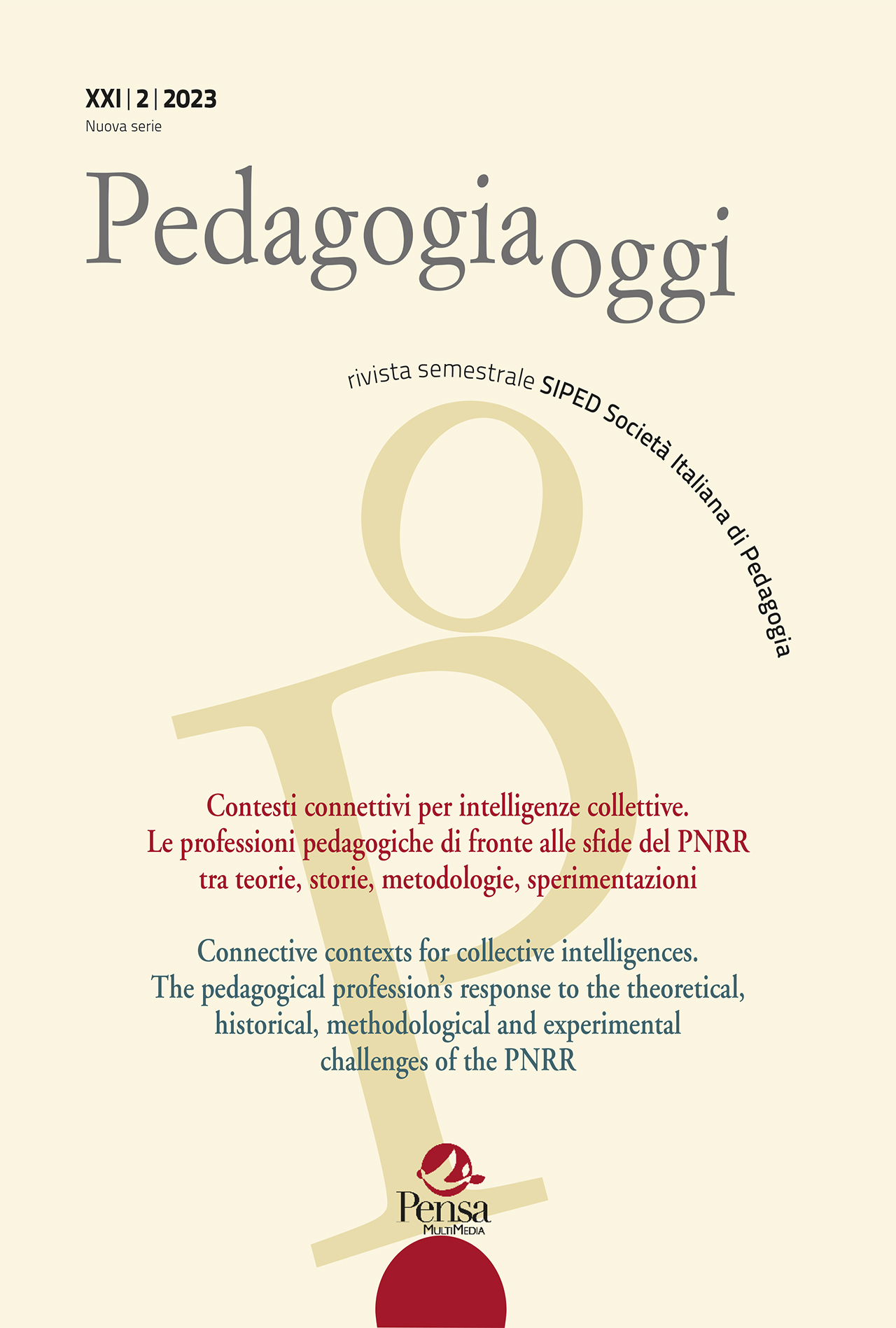Dimensioni delle pratiche partecipative in un ambiente di apprendimento con supporto digitale
DOI:
https://doi.org/10.7346/PO-022023-27Parole chiave:
pratiche partecipative, laboratorio didattico, formazione accademica dei educatori, potenzialità della gamificatione, EduSpacesAbstract
Numerosi studi empirici hanno esaminato la pratica democratica degli studenti nelle istituzioni educative senza fare luce sui problemi sistemici (ad esempio, Demirovic, 2013: 17, Feu et al. 2017). Questi ultimi nascono da aspettative contrastanti sulla cultura dell'interazione tra politica, amministrazione e pedagogia (Baldacci, 2017: 25). L'obiettivo del presente studio è indagare le potenzialità delle pratiche partecipative degli studenti nel contesto dell'apprendimento gamificato nella formazione accademica degli insegnanti. Sulla base del modello a stadi operativi della partecipazione graduale dei giovani adulti (Hart, 1992), viene analizzato l'intreccio tra teoria e pratica nell'istruzione superiore partecipativa attraverso il gioco e il game design (Finseth, 2015). I risultati mostrano un profilo di seminario specifico della situazione che presenta ampie parti sia di eteronomia che di autodeterminazione. Questi fenomeni sono "momenti di rottura" (Budde, 2010: 385), in cui insegnanti e studenti decidono congiuntamente sul posto se e come confermare o riformulare le aspettative formali e informali (cfr. Zagreblesky, 2007).




